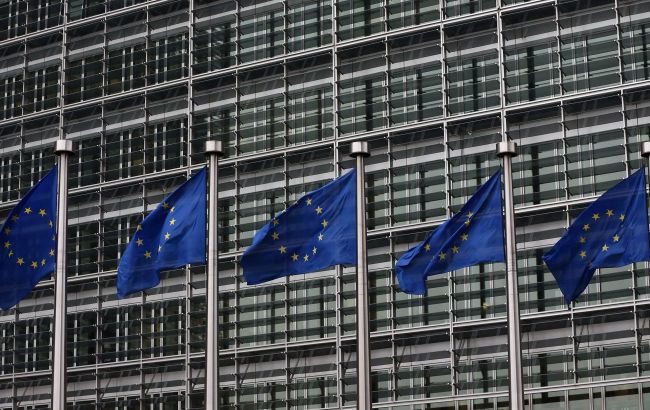EU extends sanctions against Russia until the end of January 2026
 Photo: The EU has extended sanctions against Russia until the end of January 2026 (Getty Images)
Photo: The EU has extended sanctions against Russia until the end of January 2026 (Getty Images)
The European Union has reaffirmed its determination to isolate the Russian economy and limit its revenues. The sanctions will be in effect at least until early 2026, says the EU Council website.
The Council of the EU has decided to extend the restrictive measures against Russia in connection with the ongoing actions to destabilize the situation in Ukraine. The sanctions have been extended for six months - until January 31, 2026.
The economic measures, first introduced in 2014, were significantly expanded after Russia's full-scale military aggression against Ukraine began in February 2022.
A wide range of restrictions
Currently, sanctions cover a wide range of sectors: trade, finance, energy, technology, dual-use goods, industry, transportation, and luxury goods. A ban has also been imposed on the import and transportation of Russian oil by sea and certain oil products to the EU.
Additionally, a number of Russian banks have been disconnected from the SWIFT system, and a number of Kremlin propaganda media outlets have had their broadcasting and licenses suspended in the EU. Some measures are aimed at combating sanctions circumvention.
Violation of international law
As long as Russia continues its illegal actions that violate fundamental norms of international law, including the prohibition of the use of force, the EU will maintain sanctions and, if necessary, strengthen them.
Background and context
The decision to impose sanctions was adopted by the parliament on July 31, 2014, in response to Russia's aggressive actions against Ukraine. In addition to economic sanctions, there are other measures in place: restrictions on economic ties with the occupied Crimea, Sevastopol, and the uncontrolled territories of the Donetsk, Luhansk, Kherson, and Zaporizhzhia regions.
Personal sanctions are also applied: asset freezes and travel bans for hundreds of individuals and legal entities.
Support for Ukraine
Since the invasion in February 2022, the EU has imposed 17 sanctions packages. In December 2024, the European Council reaffirmed its full support for Ukraine's independence, sovereignty, and territorial integrity within its internationally recognized borders.
The EU also reaffirmed its readiness to provide Ukraine with political, financial, humanitarian, military, and diplomatic assistance for as long as necessary.
Principles of peace and new pressure measures
The European Council supports a comprehensive, just, and sustainable peace based on the UN Charter and international law, as well as the key principles of Ukraine's peace formula. Any initiatives regarding Ukraine should be discussed only with the participation of Ukraine.
The EU is ready to increase pressure on Russia, including the introduction of additional sanctions, the statement said.
In June, the EU failed to adopt the 18th package of sanctions against Russia over Slovakia's veto. It was supposed to hit Moscow's energy revenues, banks, and military industry.
According to RBC-Ukraine's sources in Brussels, the EU is likely to convince Slovak Prime Minister Robert Fico to support the 18th package of sanctions in July.

